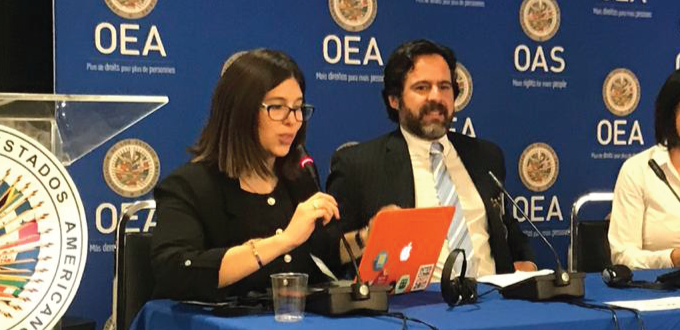Dialogue on the Future of Internet Governance
20/09/2018

LACNIC organized a workshop titled “Multi-stakeholder Dialogue on the Future of Internet Governance” with the participation of members of the technical community, academia, the private sector, civil society and government representatives. The workshop took place during the meeting of the Permanent Consultative Committee of the Inter-American Telecommunications Commission (CITEL) in Washington.
Together with the Internet Society (ISOC) and with the collaboration of CITEL, the activity LACNIC implemented consisted of two panels followed by a plenary where participants worked in groups to discuss the progress they had achieved.
The first panel, Advances in the Processes of Internet Governance in the Region, assessed the contribution of national and regional spaces to the general governance ecosystem. Participants noted that the process has been dynamic over time and that now new challenges must be addressed in order to continue to drive conversations about the future of the Internet.
Moderated by Paula Oteguy, strategic relations officer at LACNIC, the panel included Yolanda Martinez from Mexico, Santiago Reyes from Canada, Rodrigo de la Parra of ICANN, Ana Lucía Lenis of Google, and Pablo Bello of ASIET.
The panel highlighted the participation of new actors such as entrepreneurs in recent years and stressed the value of multistakeholder dialogue. In this sense, there was consensus on the fact that interesting contributions had been achieved, such as the declaration of the Internet as a human right in Mexico, a proposal that emerged from the Dialogues on Internet Governance.
Another idea participants agreed on and which is worth noting is how these Internet spaces contribute to a better design of public policies. As the moderator observed, “The model creates input for decision-making processes.”
Panelists agreed that governance spaces improve interactions and create a much more coherent regional discussion platform.
The second panel, Roles and Challenges of Governance in the Government Environment, discussed the decentralized approach to follow and participate in the wide range of global, regional and local forums where various relevant issues are discussed, as well as the time and resources this requires. Moderated by Amparo Arango from the Dominican Republic, panelists included Nicolás Antoniello from Uruguay, Jeferson Nacif from Brazil, Anne Rachel of ARIN, Agustin Rossi of Public Knowledge, and Amy Álvarez of AT&T.
The panels were followed by a plenary where participants were divided into three groups to analyze the conclusions reached during the two panels. The most significant agreement reached by the groups was that the multistakeholder model contributes to Internet decision processes and facilitates decision making.
Documents presented at CITEL. During the CITEL meeting, LACNIC presented two documents with information about the regional RIR’s activities and initiatives. The first of these documents focused on LACNIC WARP and included statistics on the issues that are raising concern in the region, while the second focused on the Ayitic Goes Global initiative, which seeks to increase women’s access to employment in Haiti by building digital capabilities.
(Free access, no subscription required)